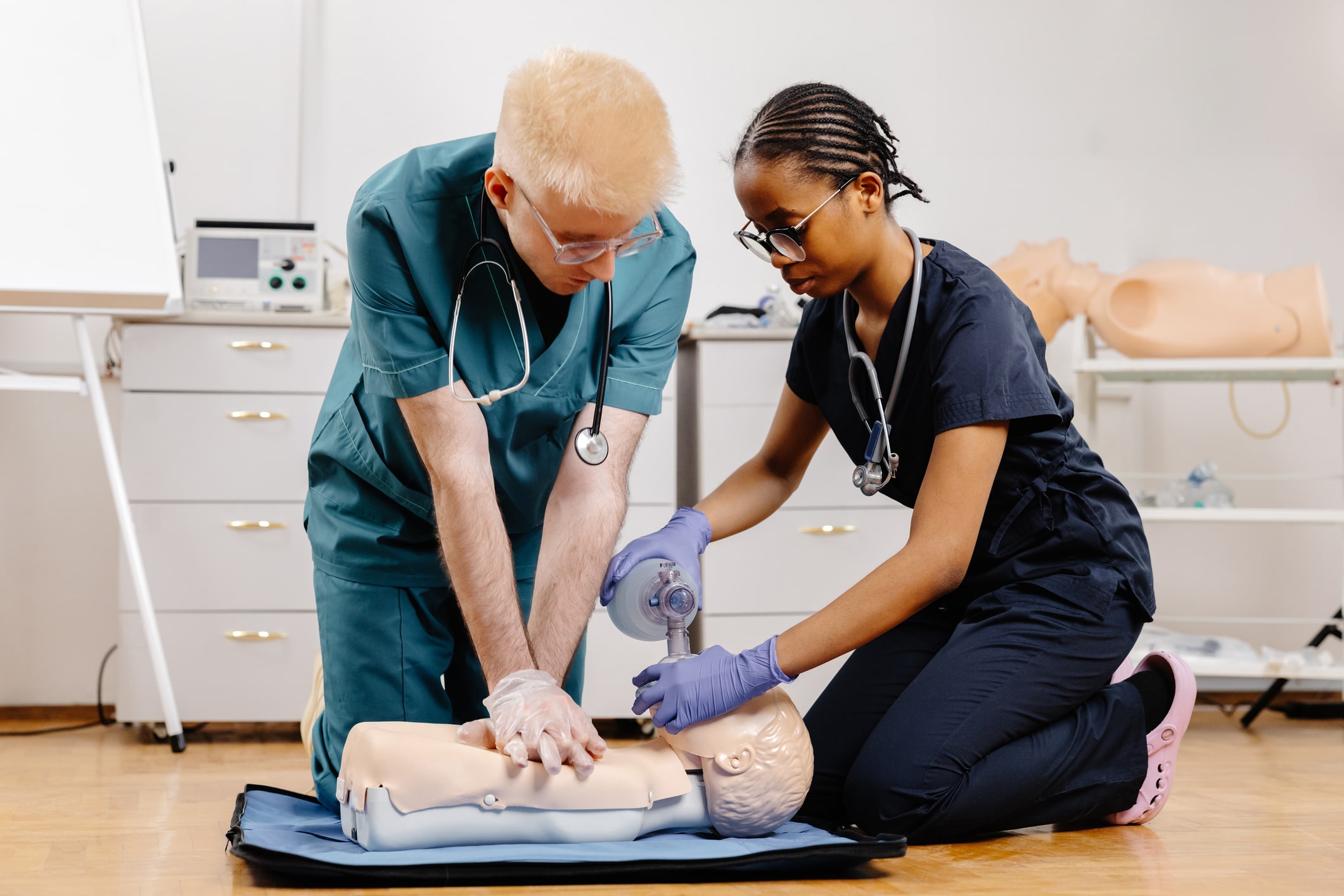How to Land a Job in Healthcare Without Prior Experience

Strong 8k brings an ultra-HD IPTV experience to your living room and your pocket.
The healthcare industry is one of the fastest-growing sectors, offering numerous job opportunities for individuals looking to build a stable and rewarding career. However, many people assume that breaking into healthcare requires years of education and prior experience. The truth is, there are several entry-level roles that require little to no experience, making it possible for newcomers to start their journey in this field.
Whether you’re transitioning from another industry or just starting your career, you can still find a healthcare job by leveraging transferable skills, obtaining relevant certifications, and exploring alternative job roles. From administrative positions to patient care assistants, there are multiple pathways to gain a foothold in the healthcare sector.
Understanding the Healthcare Industry and Its Job Opportunities
The healthcare industry plays a vital role in society, providing essential medical services, patient care, and administrative support. With an aging population and a growing demand for healthcare services, the industry is constantly in need of skilled professionals. The good news is that not all healthcare jobs require years of medical training or prior experience. Many entry-level roles offer a way to get started in the field with minimal qualifications.
If you’re looking to break into healthcare, consider roles such as:
Medical Receptionist – Handles patient appointments, billing, and administrative tasks at hospitals, clinics, and private practices.
Home Health Aide (HHA) – Assists patients with daily activities, such as bathing, dressing, and medication reminders, often in home settings.
Certified Nursing Assistant (CNA) – Provides basic patient care under the supervision of nurses, including monitoring vital signs and assisting with mobility.
Medical Scribe – Documents medical procedures and updates patient records for doctors, improving efficiency in healthcare settings.
Pharmacy Technician – Helps pharmacists dispense medication and manage inventory in pharmacies and hospitals.
Patient Transporter – Assists in moving patients between different hospital departments safely.
These roles offer an excellent starting point, allowing individuals to gain hands-on experience, develop industry-specific skills, and explore further career advancement opportunities. By starting with one of these positions, you can gradually build your knowledge and pursue additional certifications or training to progress in the healthcare field.
Transferable Skills That Can Help You Enter Healthcare
Breaking into the healthcare industry without prior experience is possible if you have the right set of transferable skills. Many skills from other industries—such as customer service, retail, and administrative roles—can be valuable in healthcare settings. Employers often look for candidates who possess strong soft skills, problem-solving abilities, and a willingness to learn.
One of the most important soft skills in healthcare is communication. Whether you’re interacting with patients, doctors, or administrative staff, being able to clearly convey information is crucial. Empathy and compassion are also essential, as working in healthcare involves dealing with people who may be in distress or discomfort. Additionally, teamwork is a key requirement, as healthcare professionals collaborate closely to ensure patients receive the best possible care.
Hard skills also play a role in securing a healthcare job. Basic computer proficiency, such as working with electronic health records (EHR) or data entry, is valuable for administrative roles. If you’ve worked in a fast-paced environment before, time management and multitasking are critical skills that can help you succeed in healthcare settings. Even customer service experience is beneficial, as it equips you with problem-solving skills and patience when dealing with patients.
By identifying and leveraging these transferable skills, you can strengthen your job applications and make yourself a competitive candidate for entry-level healthcare positions. With the right mindset and willingness to learn, you can transition into the healthcare field and start building a rewarding career.
Certifications and Training for Beginners
If you’re looking to enter the healthcare field without prior experience, earning relevant certifications can significantly improve your job prospects. Many entry-level healthcare roles require only short-term training, making it easier to get started in the industry. These certifications validate your skills and demonstrate your readiness to work in a professional healthcare setting.
Here are some beginner-friendly certifications to consider:
CPR (Cardiopulmonary Resuscitation) and First Aid – Essential for roles like home health aides, medical assistants, and caregivers.
Certified Nursing Assistant (CNA) – Provides training in basic patient care, vital sign monitoring, and assisting nurses in hospitals and nursing homes.
Patient Care Technician (PCT) – Similar to a CNA, but with additional skills in EKG testing and phlebotomy.
Medical Billing and Coding – Ideal for those interested in administrative healthcare roles, helping process insurance claims and manage patient records.
Electronic Health Records (EHR) Specialist – Teaches how to handle and update digital patient records used in hospitals and clinics.
Pharmacy Technician Certification (CPhT) – Required for pharmacy technician roles, assisting pharmacists in dispensing medications and managing inventory.
Many of these certifications can be completed in just a few weeks or months through online courses, vocational schools, or community colleges. Additionally, some hospitals and healthcare organizations offer training programs or apprenticeships that provide hands-on experience. By obtaining these certifications, you can enhance your employability and take the first step toward a rewarding healthcare career.
Networking and Job Search Strategies
Finding a healthcare job without prior experience requires more than just submitting applications—you need to actively network and use the right job search strategies to stand out. Many healthcare positions, especially entry-level roles, are filled through referrals and professional connections. By leveraging networking opportunities, you can increase your chances of securing a job in this competitive industry.
Here are some effective ways to build your network and enhance your job search:
Attend Healthcare Career Fairs – Job fairs are a great way to meet potential employers, learn about open positions, and make a lasting impression in person. Many hospitals and healthcare organizations host recruitment events specifically for entry-level candidates.
Join Professional Healthcare Groups – Becoming a member of healthcare associations, such as the American Association of Medical Assistants (AAMA) or the National Healthcareer Association (NHA), can help you connect with industry professionals and stay informed about job openings.
Leverage Online Platforms – Use LinkedIn, job boards, and industry-specific health job websites like HealthcareJobSite.com to find and apply for healthcare jobs. Engaging with healthcare professionals on LinkedIn can also help you gain insights and potential job referrals.
Volunteer or Intern – Gaining hands-on experience through volunteering at hospitals, nursing homes, or community health centers can give you valuable exposure and help you make connections that may lead to job opportunities.
Reach Out to Local Healthcare Facilities – Many clinics, hospitals, and nursing homes have entry-level openings that may not always be advertised online. Visiting these facilities in person or contacting HR departments directly can set you apart from other applicants.
Use Staffing Agencies – Healthcare staffing agencies specialize in placing candidates in medical jobs, including temporary and entry-level positions that can help you gain experience.
By actively networking and using targeted job search strategies, you can increase your visibility to employers and improve your chances of landing a healthcare job. Taking the initiative to connect with professionals and gain relevant experience will set you on the right path toward a successful career in healthcare.
Preparing a Strong Resume and Cover Letter
A well-crafted resume and cover letter can make a significant difference when applying for a healthcare job, especially if you have little to no prior experience. Since entry-level positions focus on skills, certifications, and a willingness to learn, your application should highlight these aspects effectively.
Tips for Crafting a Strong Resume
Choose the Right Format – Use a clean and professional layout with clear sections for skills, education, and work experience. If you lack direct healthcare experience, opt for a skills-based or functional resume format.
Highlight Transferable Skills – Emphasize communication, teamwork, customer service, and problem-solving skills that are valuable in healthcare settings.
Include Relevant Certifications – Mention any healthcare-related certifications such as CPR, CNA, or Medical Billing and Coding to showcase your qualifications.
Showcase Volunteer Work or Internships – If you’ve volunteered at a hospital, assisted in a clinic, or completed healthcare-related training, list these experiences to demonstrate hands-on involvement in the field.
Use Action-Oriented Language – Describe past experiences using strong action verbs like “assisted,” “coordinated,” “managed,” or “supported” to make your resume more impactful.
Tips for Writing an Effective Cover Letter
Personalize Your Application – Address the hiring manager by name whenever possible and tailor your cover letter to the specific job role.
Express Enthusiasm for Healthcare – Even if you don’t have direct experience, convey your passion for patient care, healthcare administration, or the medical field in general.
Connect Your Skills to the Role – Explain how your existing skills (customer service, teamwork, organization, etc.) make you a strong candidate for the position.
Keep It Concise and Professional – A strong cover letter should be no more than one page, with a clear introduction, body, and conclusion.
By focusing on your strengths, transferable skills, and willingness to learn, you can create a compelling resume and cover letter that increases your chances of securing an entry-level healthcare job.
Acing the Interview for an Entry-Level Healthcare Job
Once you’ve secured an interview, it’s time to prepare thoroughly to make a strong impression on potential employers. Entry-level healthcare roles often prioritize soft skills, a willingness to learn, and a genuine passion for helping others. Showcasing these qualities during the interview can significantly increase your chances of landing the job.
Tips to Succeed in Your Healthcare Job Interview:
Research the Employer – Learn about the hospital, clinic, or healthcare facility you’re interviewing with. Understanding their mission, values, and patient care approach will help you tailor your responses.
Highlight Transferable Skills – Even if you lack direct healthcare experience, emphasize skills like communication, teamwork, problem-solving, and attention to detail. Use examples from previous jobs, volunteering, or coursework.
Prepare for Common Interview Questions – Expect questions like:
“Why do you want to work in healthcare?”
“How do you handle stressful situations?”
“Describe a time when you had to provide excellent customer service.”
“How do you prioritize multiple tasks?”
Prepare thoughtful answers that showcase your strengths and ability to work in a fast-paced environment.
Demonstrate Compassion and Professionalism – Employers look for candidates who genuinely care about patients. Show empathy, patience, and a positive attitude throughout the interview.
Discuss Certifications and Training – If you have relevant certifications (such as CPR, CNA, or Medical Billing), bring them up during the interview to highlight your qualifications.
Ask Insightful Questions – Show your enthusiasm by asking questions like:
“What does a typical day in this role look like?”
“What training opportunities are available for new hires?”
“How does this organization support career growth?”
Dress Professionally and Arrive on Time – First impressions matter. Wear professional attire and arrive at least 10–15 minutes early to show reliability and commitment.
Follow Up After the Interview – Send a thank-you email expressing appreciation for the opportunity. Reiterate your interest in the role and highlight a key point from the discussion.
By preparing thoroughly and presenting yourself as a motivated and compassionate candidate, you can confidently navigate your interview and take a big step toward launching your healthcare career.
Conclusion
Breaking into the healthcare industry without prior experience may seem challenging, but with the right approach, it’s entirely possible. By understanding the job opportunities available, leveraging your transferable skills, earning relevant certifications, and using strategic networking and job search techniques, you can successfully land an entry-level role in healthcare.
Building a strong resume, crafting a compelling cover letter, and preparing thoroughly for interviews will further improve your chances of standing out to employers. The healthcare industry values dedication, empathy, and a willingness to learn—qualities that can set you apart, even if you’re just starting your journey.
If you’re ready to take the first step toward a rewarding healthcare career, start exploring job openings, enroll in relevant certification programs, and connect with professionals in the industry. With persistence and the right strategy, you can secure a healthcare job and begin a fulfilling career in this growing field.
Note: IndiBlogHub features both user-submitted and editorial content. We do not verify third-party contributions. Read our Disclaimer and Privacy Policyfor details.



